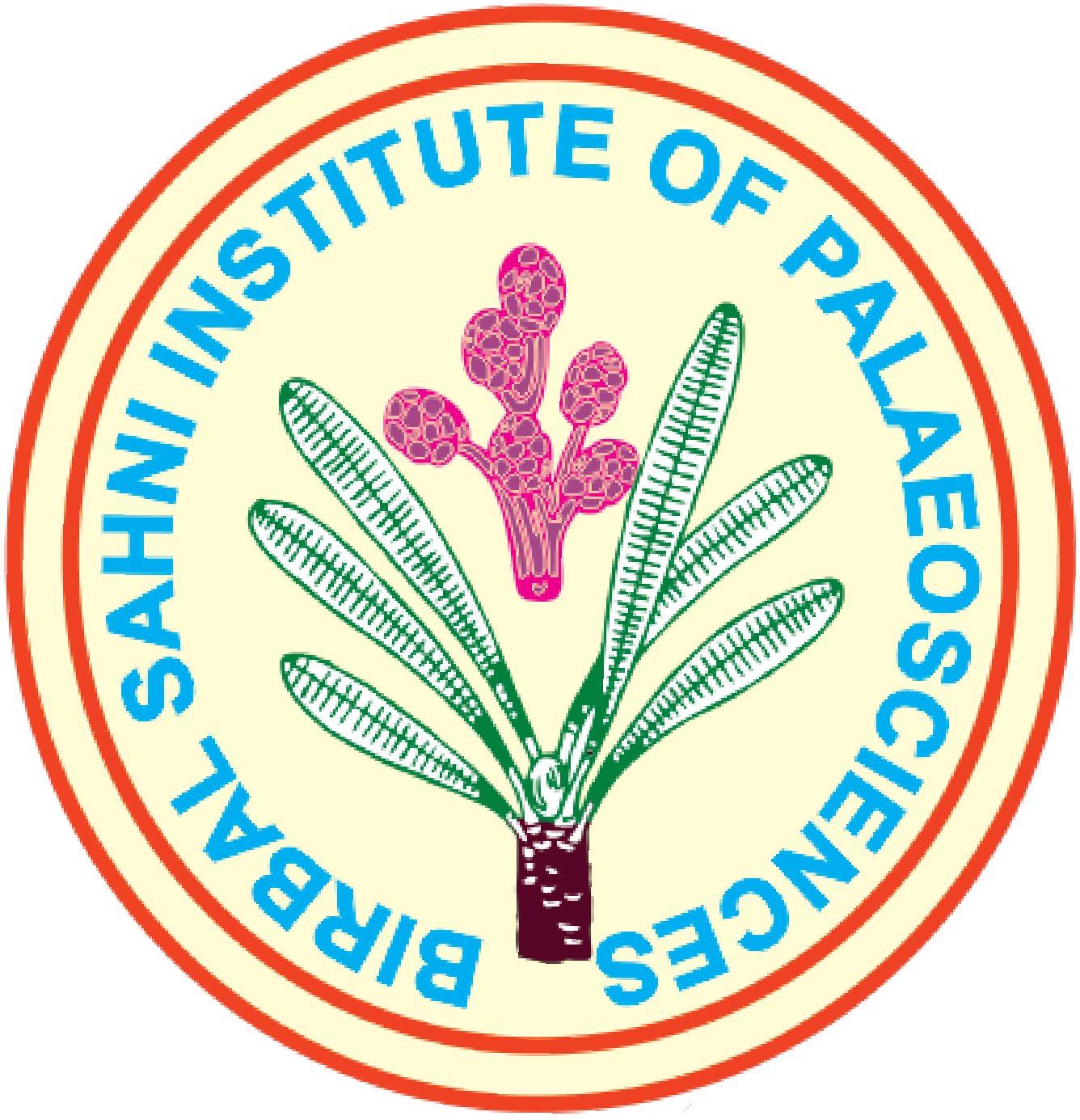Araucarites bindrabunensis sp. nov., a petrified megastrobilus from the Jurassic of Rajmahal Hills, Bihar
DOI:
https://doi.org/10.54991/jop.1954.459Abstract
Under the name Araucarites bindrabunensis sp. nov. two specimens of petrified araucarian megastrobili are described from the Raj mahal Hills. Bihar. The megastrobili are ellipsoid in form and bear closely arranged, numerous, single-seeded scales. The scales are ligulate, winged and woody. Vascular supply of the cone-scales is probably double. Sclereids are absent from the pith of the cone axis and resin cells from below the vascular bundles both in the scale and the ligule. Stomata are absent from the upper surface of the seed-scale. Epidermal cells vary in size and shape according to their position on the scale.
In several respects the Rajmahal specimens resemble the fossil species Araucaria mirabilis (Speg.) Calder and the living species A. bidwillii Hook.
Downloads
Metrics
References
Biswash, K. P. (1933). The distribution of wild conifers in the Indian Empire. Jour. Indian Bot. Soc. 12(1): 24-47.
Calder, M. G. (1953). A coniferous Petrified Forest in Patagonia. Bull. British Museum (Nat. Hist.). 2(2): 99-138.
Cookson, I. C. & Duigan, S. L. (1951). Tertiary Araucariaceae from South-eastern Australia, with notes on living species. Australian Jour. Sci. Res. 4(4): 415-449.
Darrow, B. S. (1936). A Fossil Araucarian Embryo from the Cerro Cuadrado of Patagonia. Bot. Gaz. 98: 328-337.
Feistmantel, O. (1876). Jurassic (Oolitic) flora of Kach – “Fossil Flora of the Gondwana System”. Mem, Geol, Surv. Ind. Pal. Ind. 2: 1-80.
Idem (1877). Jurassic (Liassic) flora of the Rajmahal Group from Golapili (near Ellore), South Godavari district. Ibid. 1: 164-190.
Idem (1877a). Flora of the Jabalpur group (Upper Gondwana), in the Son-Narbada region. Ibid. 2: 81-105.
Idem (1879). Fossil flora of the Upper Gondwanas on the Madras Coast. Ibid. 1: 192-224.
Idem (1880). Fossil Flora of the Gondwana System. Ibid. Sr. 2. 1(1-4): 7-18.
Idem (1882). Flora of the South Rewa Gondwana Basin. Ibid. 4: 1-66.
Gothan, W. (1925). Sobre Restos de Plantas Fosiles Procedentes de la Patagonia. Bol. Acad. Cienc. Cordoba. 28: 197-212.
Kendall, M. W. (1949). A Jurassic Member of the Araucariaceae. Ann. Bot. (N.S.) 13(50): 151-163.
Sahni, B. (1928). Revisions of Indian Fossil Plants – I. Mem. Geol. Surv. Ind. Pal. Ind. 11: 1-49.
Sahni, B & Rao, A. R. (1933). On some Jurassic plants from Rajmahal Hills, Bihar. Jour. & Proc. Asiat. Soc. Bengal. (N.S.) 27: 183-208.
Spegazzini, C. (1924). Coniferales Fosiles Patagonicas. An. Soc. Cient. Argent. Buenos Aires. 98: 125-139.
Vishnu-Mittre (1953). Araucarites bindrobunensis sp. nov. A megastrobilus from the Jurassic of the Rajmahal Hills, Bihar. Proc. 40th Session, Indian Sci. Congr. Association, Lucknow. Pt. 3: 111-112.
Wieland, G. R. (1935). The Cerro Cuadrado Petrified forest. Carnegie Inst. Publ. No. 499.
Wilde, M. H. & Eames, A. J. (1948). The ovule and the seed of Araucaria Bidwillii. Ann. Bot. (N.S.) 12: 311-327.
Idem (1952). The Ovule and the seed of A. Bidwillii with discussion of the taxonomy of the genus. Ibid. 16: 27-49.
Downloads
Published
How to Cite
Issue
Section
License

This work is licensed under a Creative Commons Attribution-NonCommercial 4.0 International License.









